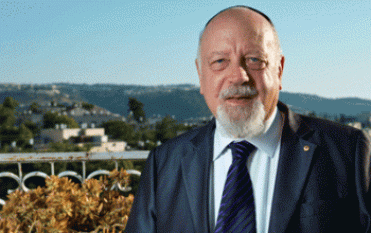March 15, 2021 by Rabbi Raymond Apple
Read on for article
Ask the Rabbi.

Rabbi Raymond Apple
OATHS
Q. I recently heard that a rabbi declined to take an oath in a law court, claiming it was contrary to his religious belief, and insisted on making an affirmation. Surely taking an oath is permitted by Judaism?
A. There is a saying that someone who cannot be believed without taking an oath cannot be believed at all.
However, oath-taking is certainly known in Judaism, though, as Justice Elon explained in detail in an Israeli case, Baker v. Eilat (1978), its purpose has undergone change.
Originally the oath established a person’s claim and not merely their credibility. Later it was necessary to “intimidate” witnesses and evoke their conscience because in the contemporary moral and social climate people took liberties with the truth.
Orthodox Jews, however, regard the taking of an oath very solemnly and seriously and are often very apprehensive about taking the Divine Name in vain, even unintentionally.
Thus, strange though it may seem on the surface, the rabbi may have felt that an oath would have been contrary to his religious belief and preferred an affirmation.
TOO HARD QUESTIONS
Q. Is it true that some Talmudic problems were left for Elijah to solve?
A. Talmudic debates were sometimes left open-ended. In such cases the text concluded with the word “teyku”.
Coming from the root “kum” (“arise, stand”), this word denotes, “let it stand”.
A less likely derivation is from “tik”, a file, and hence “teyku” suggests, “Leave it on file”.
The popular interpretation is that “teyku” stands for “Tishbi y’taretz kush’yot v’bbayyiot” – “Elijah the Tishbite will resolve all problems and difficulties”.
The thought of Elijah answering difficult problems raises interesting questions. Why is he called “the Tishbite” and not, as is normal practice, Eliyahu HaNavi – “Elijah the Prophet”?
The answer is that he was not only a prophet but a sage. It will not be some prophetic message from heaven that will solve the problems of the ages but a sound, experienced intellectual mind.
The one who brings us the answers will not so much be the Elijah who ascended bodily into heaven (II Kings 2:11), but the Elijah who came from the village of Tishbe in Gil’ad, north of the River Yabbok (I Kings 17:1), where he had experience in handling practical problems.
The Mishnah (Eduyyot 8:7) quotes rabbis who said that Elijah’s role is not “to declare clean or unclean”, but, according to Rabbi Judah, “to bring agreement where there is matter for dispute”; according to the majority of the sages, “to bring peace in the world” (cf. Mal. 4:5).
Elijah will thus pave the way for the Messiah by ensuring that no simmering conflicts remain and that there is harmony on earth as there is in heaven.
NISAN – ONE OF THE BUSIEST MONTHS
The two busiest months of the year are Nisan and Tishri. Tishri actually has more festivals, but Nisan has a unique multiplicity of activities, domestic, liturgical, social and intellectual.
The demands that Pesach makes on us are almost unbelievable, and yet it is the one festival that almost every Jew on earth observes, at least to some extent.
Samson Raphael Hirsch explains why the other name for Nisan is “Aviv”, “The Month of Spring”. In springtime, the earth is a season of hope. As Shir HaShirim puts it (2:11-12), “The winter is past, the rain is over and gone; the flowers appear on the earth, the time of singing is come”.
In history, this is symbolic of the people of Israel on the very first Pesach, when the gloom of night gave way to dawn and the people were about to experience national rebirth.
Hirsch adds that this should also be a source of comfort to the individual when “the bitter hours of trial in your own life… bring you near to God as your Guardian and Shepherd”.
Those who live in the Southern Hemisphere with a different springtime can still learn the same lesson.
Rabbi Raymond Apple served for 32 years as the chief minister of the Great Synagogue, Sydney, Australia’s oldest and most prestigious congregation. He is now retired and lives in Jerusalem where he answers interesting questions.
Related posts:
Views: 0
 RSS Feed
RSS Feed

















 March 15th, 2021
March 15th, 2021  Awake Goy
Awake Goy  Posted in
Posted in  Tags:
Tags: 
















